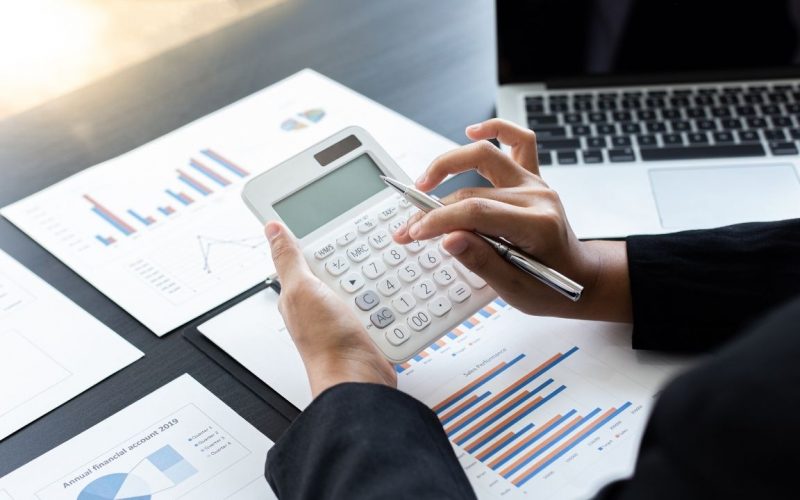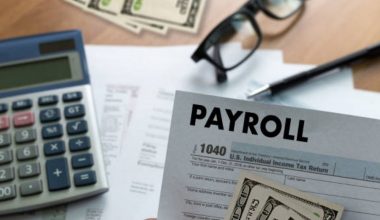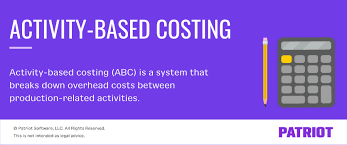In the world today, our newsfeeds are constantly bombarded with stories concerning fraudulent actions.
The internet age has provided fraudsters and scammers with the chance and channel to control online commercial activity, and committing fraud has now become easier.
According to a report from Global Fraud and Identity Report, 33% of organizations reported more fraud losses than in other years.
Luckily for us, there are people trained with numerical skills to detect what causes suspicious financial activity and this is where forensic accounting and accountant comes in.
In this article, we would look at what forensic accounting is, who forensic accountants are, the different types of forensic accounting, and the salary of a forensic accountant.
First off, let’s start with an introduction to what forensic accounting is all about
What is Forensic Accounting?
Forensic accounting is known as the investigation of fraud or financial manipulation by exceedingly extensive research and analysis of financial data.
According to Investopedia, forensic accounting involves the utilization of accounting, auditing, and investigative abilities or skills to look into a person’s or company’s finances.
As a Forensic accountant, you are expected to look just beyond the statistics of a business and address the situation of the business at hand. In judicial proceedings, accounting analyses that are suitable are often provided through forensic accounting.
In fraud and embezzlement situations, forensic accounting is commonly utilized to explain the nature of a financial crime in court.
While in terms of litigation support, forensic accounting is utilized in lawsuits when the quantification of damages is required.
Forensic accounting in this case is a term that is used to describe an examination of financial data that can be used to support a legal case. Quantifications are used by parties involved in legal disputes to aid in the resolution of disputes through settlements or court judgments.
This could happen as a result of compensation and benefit disagreements, for example. If the disagreement goes to court, the forensic accountant could be called an expert witness.
Forensic evidence which means evidence that can be used in a law court is an important tool when preparing for litigation.
There are situations where you might be expected to dig through all of a company’s or individual’s financial records which can take months, if not years and thereby necessitating a team of specialized accountants who work like detectives that are attempting to solve a riddle.
READ MORE: INTANGIBLE ASSETS: What are Intangible Assets? (+ Accounting Examples)
Forensic Accountant
Forensic accountants are those skilled accountants who analyze, interpret, and summarize a broad range of financial and business matters.
They can be found in insurance companies, banks, police forces, government organizations, or public accounting firms.
As a forensic accountant, you are expected to put together financial evidence, create computer applications that can be used to manage the data collected and their findings are now communicated through reports or even presentations.
There are cases where a forensic accountant may be asked to develop visual aids to support trial evidence in addition to testifying in court.
Forensic accounting comprises the use of tracking funds, asset identification, asset recovery, and due diligence evaluations in corporate investigations.
More so, due to their high level of involvement in legal matters and experience with the judicial system, forensic accountants may seek extra training in alternative dispute resolution (ADR).
READ MORE: Balance Sheet Format: Best Accounting Practices with Examples (Detailed!!!)
Types of Forensic Accounting
Below are the different types of forensic accounting.
#1. Vendor Frauds
Vendor fraud is a type of forensic accounting that is often known as payment fraud, it is referred to as the act of creating or redirecting payments without authorization.
Those within the organization, such as workers, or individuals outside the organization, such as suppliers, might commit vendor fraud. Vendor fraud has a scheme that can be grouped into:
- Frauds committed by vendors acting alone
- Fraud that involves collection between the vendors and defrauded organizations employees.
Under the vendor frauds schemes, the following are included:
- Overcharging: The inflated invoices for products and services are submitted by the vendors. In rare situations, the invoice may indicate charges for a larger quantity of items than the client actually got.
- Bid Rigging
Vendors and workers work together to steer the organization’s acquisition of products and services to a high-priced bidder.
- Fixing of prices
This price-fixing scheme involves the resolution between competitors with the aim of setting the same price for goods or services by either defining a price range together or considering it at a minimum price.
- Kickbacks
The kickbacks involve employees receiving payments from vendors that have been plundered in order to facilitate the scams.
READ MORE: What is Trust Accounting? Overview, and How it Works
#2. Bankruptcy
Bankruptcy fraud is a type of fraud committed by white-collar criminals. It is a legal process by which individuals or other entities that are unable to repay their creditors seek relief from some or all of their debts. An insolvent’s legal position is not limited to bankruptcy.
Concealing an asset, concealing or destroying a document, conflicts of interest, misleading statements, and fraudulent claims are some of the most common criminal offenses under bankruptcy laws.
Strategic bankruptcy must be clearly differentiated from bankruptcy fraud. Whether or not the debtor believes the asset has net value, must be mentioned in the bankruptcy schedules.
This is because, after a bankruptcy petition is filed, it is up to the creditors to evaluate whether a given asset is worth anything.
READ MORE: Accounting Systems: Definitions & Guide To The Best Accounting Softwares
#3. Investing Fraud
Investing fraud, also known as securities fraud or stock fraud is a deceptive technique in the stock or commodities markets that leads to investors making purchase or sale decisions based on misleading information, which is a violation of securities legislation.
For example, investing fraud includes; Embezzlement of funds, manipulating companies’ stock, and financial reporting fraud in public companies.
READ MORE: Best 15 Free Accounting Software for Business Owners
Types of Investing Fraud
We also have several types of investment fraud and they include the following:
- Corporate fraud
This is a fraud that is carried out in the workplace. Corporate fraud is referred to as an illicit activity carried out in a dishonest or unethical manner by an individual or an organization.
Dummy Corporation is a fictitious company. Fraudsters may build dummy corporations to provide the appearance of being an existing firm with a similar name.
- Internet Fraud
This is a type of investing fraud whereby Criminals engage in pump and dump operations and this is according to the SEC enforcement agents, where there is misleading and fraudulent information spreading in chat rooms, forums, and online bulletin boards.
- Insider Trading
Insider trading can be divided into two categories. The first is the trading of a corporation’s stock or other security by corporate insiders such as officers, key employees, directors, or shareholders holding more than 10% of the company’s equity. This is typically lawful, although there are certain obligations for reporting.
READ MORE: ACCOUNTING PROGRAMS: Best Programs for Small Business, Updated!!! (free & paid)
#4. Financial Identity Theft
Another type of forensic accounting is Financial Identity Theft. This is done when someone makes financial profits by using another person’s Personally Identifiable Information (PII).
Financial identity theft is a crime in which your creditworthiness and reputation with potential lenders and employers are at stake, in addition to your money.
#5. Insurance Fraud
Insurance fraud is when either the buyer or the vendor of an insurance contract does an illegal act.
Selling policies from a non-existent corporation, failing to submit premiums, and churning up policies to generate more fees are all examples of insurance fraud by the issuer.
#6. Debt Default
A debt default occurs when a borrower does to pay his or her loan when it is due. The length of time until a default occurs is determined by the terms agreed upon by the creditor and the borrower.
Some loans default after one missed payment, while others only default after three or more missed payments. Serious consequences, such as a negative credit rating, may occur as a result of such an event.
#7. Computer Forensic
Computer forensics, also known as computer forensic science is a subset of digital forensic science that deals with evidence obtained on computers and digital storage devices.
It aims to study digital media in a forensically sound manner in order to identify, preserve, retrieve, analyze, and provide facts and views about digital information.
The same principles and practices apply to computer forensics evidence as they do to other types of digital evidence.
READ MORE: IFRS Accounting Explained!!! (+ 2021 Trends and Techniques)
Salary of a Forensic Accountant
Jobs for accountants, especially forensic accountants, are expected to grow by 6% between 2018 and 2028, according to the Bureau of Labor Statistics (BLS).
Furthermore, accounting employment is expected to increase even faster in many states, with many forecasting growth rates of 20% or more.
In 2018, the median income for forensic accountants was $70,500. A bachelor’s degree in accounting is often required of forensic accountants.
When employees specialize and earn relevant certifications, their job and compensation prospects usually improve. Certified forensic examiners (CFE) and certified public accountants are two options for forensic accountants (CPA).
READ MORE: Lease Accounting: Classification & Guide to the New Accounting Standards
What Do Forensic Accountants Do?
To assist in civil and criminal investigations, forensic accountants examine shady financial data, look into fraud, and function as financial detectives. Here is what forensic accountants are able to do on a daily basis: utilizing financial rules and processes to help manage and reduce risk.
What Does Forensic Accounting Include?
In order to gather, analyze, and assess evidence, as well as to interpret and explain conclusions in a courtroom, boardroom, or other legal or administrative settings, forensic accounting services typically include the use of the specific knowledge and investigation abilities held by CPAs.
Do Banks Hire Forensic Accountants?
To maintain regulatory compliance and/or prevent fraud by enhancing security, private sector companies like banks frequently employ forensic accountants.
What Is Another Name for Forensic Accounting?
Forensic accounting, which is also referred to as investigative accounting, involves a thorough review and analysis of financial records and documentation for use as evidence in court.
What Is Another Name for Forensic Accounting?
Lawyers, law enforcement agencies, insurance companies, government organizations, or financial institutions may hire forensic accountants, as well as the forensic accounting divisions of public accounting firms, consulting firms that specialize in risk consulting and forensic accounting services, consulting firms, and financial institutions.
Who Needs a Forensic Accounting?
When a business suspects fraud, theft, or embezzlement, forensic accountants may be recruited. Employee fraud could occur as a result of financial stress brought on by a divorce, gambling addiction, health problems, or other problems.
Why Is It Called Forensic Accounting?
“Fit for a court of law” is the definition of the term “forensic.” A sort of accounting called forensic accounting can be used in arguments before a court forum.
What Is the Difference Between Accounting and Forensic Accounting?
The main distinction between forensic audits and accounting is the audit’s objective. A forensic accounting project has to do with frauds committed against businesses. Employee theft or a conflict with a supplier or client may be at the heart of this problem.
Conclusion
I hope this article carefully explains what forensic accounting is all about, as well as job opportunities in this career.
Hence, if you have any questions or suggestions, kindly drop them in the comments section.
Good luck!






